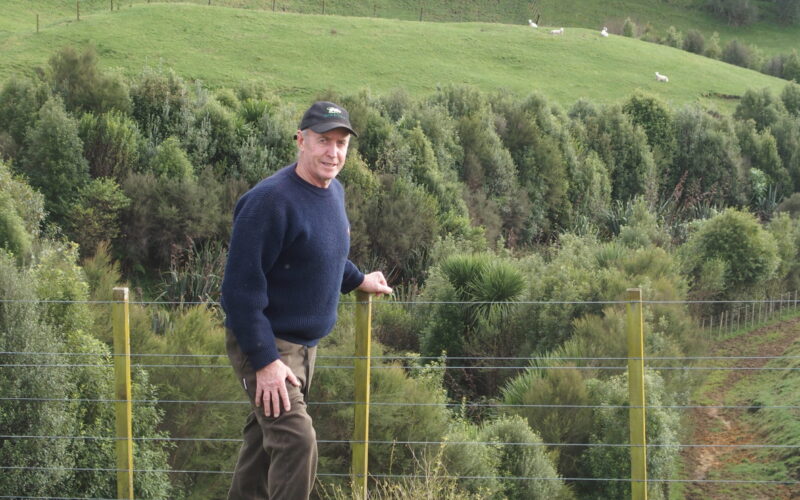The government and primary sector leaders need to re-establish their connections with grassroots farmers, says a leading Bay of Plenty farmer.
If they do not, they risk more groups like Groundswell emerging and filling that leadership vacuum, Rick Burke says.
The best way to re-connect with grassroots farmers is to empower and better utilise farmer catchment groups.
These groups are the ideal vehicle for getting key government people and policy makers out onto farms to better understand the issues farmers face, he said.
“I think this is where you can overcome a lot of the issues around not connecting properly with grassroots farmers or industry.”
These groups operate in the middle connecting both grassroots farmers as well as industry and the government.
If set up right, catchment groups operate like discussion groups where farmers can better engage. It can take years for a farmer to have the confidence to try something, but if their neighbour is doing it as part of a catchment group initiative, it gives them an avenue to become involved.
“It’s that close to you that you can’t avoid it,” Burke says.
“If the government puts the resources and the funding in behind those groups, the leaders are sitting within those groups to connect with the government – and I think that’s a massive opportunity.”
It is a powerful concept that the government is not properly utilising. It has the potential to expose policy makers to ideas they may not have considered.
It would also be the ideal vehicle to empower the next generation of farmers, he says.
Burke has been heavily involved in farm advocacy over the years, including rallying against the Waikato Regional Council’s Plan Change One (PC1) and, more recently, being a signatory in the “Waka adrift” open letter addressed to farmers and published in Farmers Weekly.
He predicts a blow-up if predictions prove correct of 20% of sheep and beef farmers exiting the industry if the government’s farm emissions reduction policy is passed.
“There’s no certainty for farmers out there at the moment. That’s why I believe the solution is to create a vehicle to get farmers to connect with farmers who can drive things through the middle. We have lost that connection with grassroots farmers.”
Groups such as Groundswell have filled the resulting vacuum and Burke questions whether farmers who advocate for Groundswell know what it wants.
“They just turn up because they’re pissed off. If we had that connection, then they would understand what we had to do and they would know what success would look like, but they have no idea because we are not connecting with them.
“What we are ending up with is that we’re forgetting about the people. As Māori say, ‘He tāngata, he tāngata’, and I think we’ve moved away from that and it becomes more about economics and big business looking after themselves and we forget about the people.”
The farming industry has tried to do something in a collaborative way through He Waka Eke Noa but is failing because it is trying to please everyone.
Trying to meld outcomes for both sheep and beef and dairy farm systems is like trying to put a square peg in a round hole, he says.
Consultation becomes prescriptive because of tight deadlines around submissions and the end result is farmers at the bottom having little input and it becomes very “top down” in approach.
“Then you get the uprising, with us and particularly with Groundswell. They recognised it a long time ago that grassroots farmers weren’t being engaged with and you end up with this polarisation of farmers and it gets really messy.”
Intensifying the issue is the sheer volume of legislative change that has been thrown at farmers over a short period of time, along with the disruption caused by covid, which prevented people from gathering to thrash out the issues.
This all exacerbated the problem, Burke says.
“It’s been compounded by the fact that we have had so much loaded onto industry and it’s just been too much for farmers. Beef + Lamb NZ, Federated Farmers and DairyNZ, they have had to take a lot of it on board themselves and have had to drive it fast, and it’s ended up being very top-down.
“Advocacy is not working all that well. The collaboration principles need to be looked at and managed a lot better in terms of managing conflicts of interest, and hidden agendas.”
Burke believes in splitting advocacy between the different sectors to ensure policy outcomes suit their farm types, whether they be vegetable growers or dairy or sheep and beef farmers.
Tailoring emissions policy frameworks for those different sectors will also prevent infighting between the sectors because they have different emission profiles and challenges around freshwater.
Once those frameworks are settled, those policies can then be dovetailed rather than building frameworks across the whole industry, he says.
“Our drivers and principles are totally different and we’re trying to do something across the board. If we can work together on different waka but collaborate across the different waka to land on something that’s enduring for both sectors, I think we would have a far better outcome.”






